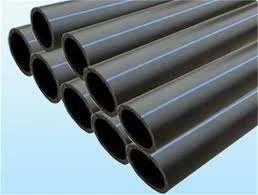дек. . 20, 2024 07:25 Back to list
HDPE Sewer Pipe Applications and Benefits in Modern Wastewater Management Solutions
Understanding HDPE Sewer Pipe A Revolutionary Solution for Wastewater Management
High-Density Polyethylene (HDPE) has emerged as a revolutionary material in the construction of sewer pipes. Its superior physical properties, combined with its environmental benefits, make it an optimal choice for modern wastewater management systems. This article explores the characteristics, advantages, and applications of HDPE sewer pipes, highlighting why they are becoming increasingly popular in civil engineering projects.
What is HDPE?
High-Density Polyethylene (HDPE) is a thermoplastic polymer made from petroleum. It is known for its high strength-to-density ratio, making it a durable choice for various applications. In the context of sewer pipes, HDPE is manufactured using advanced extrusion techniques to create seamless lengths of pipe that are resistant to corrosion, chemicals, and environmental stressors.
Key Characteristics of HDPE Sewer Pipes
1. Durability HDPE pipes are designed to last. They can withstand significant pressure and resist punctures, scratches, and impact damage. Their resistance to corrosion means they do not degrade over time, even when exposed to aggressive chemicals found in wastewater.
2. Flexibility One of the standout features of HDPE is its flexibility. This property allows the pipes to bend without breaking, which is particularly advantageous in environments with shifting soil or seismic activities. It enables easier installation and reduces the risk of damage during earthquakes.
3. Lightweight HDPE pipes are much lighter than traditional materials like concrete or metal. This makes them easier to transport and install, reducing labor costs and time spent on construction projects.
4. Jointing Techniques HDPE pipes can be joined using various methods including heat fusion and mechanical joints. Heat fusion creates a seamless connection that significantly reduces the chances of leaks and structural failures.
hdpe sewer pipe

5. Environmental Impact HDPE is fully recyclable, meaning it can be repurposed after its useful life. Additionally, the production process of HDPE is less energy-intensive compared to other materials, contributing to a reduced carbon footprint.
Advantages of HDPE in Sewer Systems
The advantages of HDPE sewer pipes extend beyond their physical characteristics. Here are some key benefits that make HDPE the material of choice
1. Cost-Effectiveness Although the initial investment in HDPE pipes may be higher than that of traditional materials, the long-term savings are significant. Reduced maintenance costs, lower energy consumption during installation, and prolonged service life contribute to overall cost savings.
2. Ease of Installation Their lightweight nature and flexible properties lead to quicker and more straightforward installation processes. This reduces labor costs and minimizes disruptions to surrounding areas, making HDPE pipes particularly beneficial in urban settings.
3. Resilience to Environmental Challenges Given the growing concerns about climate change and extreme weather conditions, HDPE pipes can withstand heavy rains, flooding, and other turbulent conditions. Their ability to perform effectively under various environmental stresses enhances the resilience of wastewater management systems.
4. Leak Reduction Traditional sewer systems often face issues related to leaks, which can lead to environmental contamination and costly repairs. The seamless nature of HDPE pipe joints minimizes these risks, promoting better environmental protection.
Conclusion
In summary, HDPE sewer pipes represent a significant advancement in the field of civil engineering and wastewater management. Their remarkable durability, flexibility, and environmental benefits make them an ideal choice for modern infrastructure projects. As urban areas continue to grow and the demand for efficient sewage and drainage solutions increases, the adoption of HDPE pipes is likely to expand further. By prioritizing sustainability and performance, HDPE sewer pipes are paving the way for a more efficient and environmentally friendly approach to managing wastewater. Whether in new constructions or renovations, the use of HDPE continues to demonstrate its value, establishing a foundation for future innovations in sewer infrastructure.
-
Durable PP Rigid Sheet: Lightweight, Chemical Resistant Solutions
NewsAug.21,2025
-
PVC Grey Sheet for Extraction: Chemical Resistant & Durable
NewsAug.19,2025
-
Durable PVC Pipe Fittings for Plumbing & Irrigation Needs
NewsAug.18,2025
-
HDPE Steel Belt Reinforced Spiral Corrugated Pipe | High Strength
NewsAug.17,2025
-
HDPE Pipe Fittings: Durable, Leak-Proof Solutions
NewsAug.16,2025
-
Premium CPVC Sheet: High-Temp & Chemical Resistant Solutions
NewsAug.15,2025

